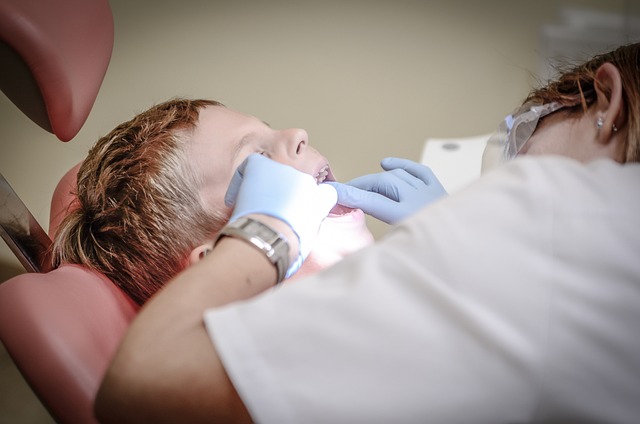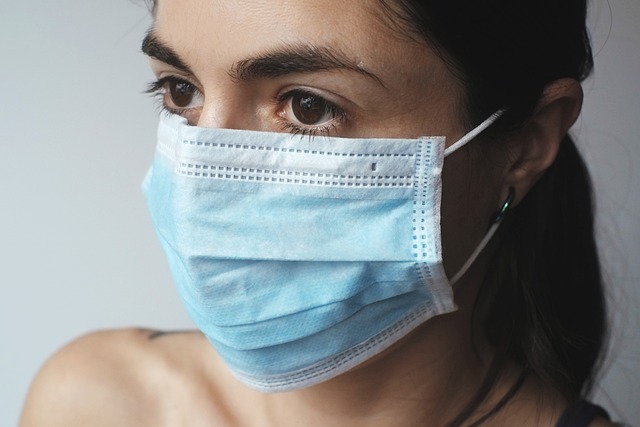Retainers and Canker Sores: Friend or Foe?
Welcome to our informative article on a common dental dilemma: “Retainers and Canker Sores: Friend or Foe?” Many of us have experienced the discomfort of canker sores at some point in our lives, and it becomes even more troublesome when we wear a retainer. Whether you’re a long-time retainer wearer or simply curious about this topic, you’ve come to the right place! In this article, we will delve into the relationship between retainers and canker sores, exploring the reasons behind their occurrence and providing some friendly tips to help you navigate this predicament. So, sit back, relax, and let’s uncover the truth about this dynamic duo.
1. Understanding Canker Sores: The Basics
When it comes to canker sores, understanding the basics can help you manage and prevent this common oral condition more effectively. Canker sores, also known as aphthous ulcers, are small, shallow lesions that develop on the inside of the mouth, including the gums, cheeks, tongue, and roof of the mouth. These painful sores can make eating and speaking uncomfortable, but fortunately, they are not contagious.
Here are some key points to keep in mind:
- Canker sores are typically round or oval with a whitish or yellowish center and a red border.
- They can vary in size, with some being as small as a pinpoint and others as large as a pea.
- The exact cause of canker sores is unknown, but they are often triggered by factors such as stress, hormonal changes, certain foods (like citrus fruits or spicy foods), or minor mouth injuries.
If you’re prone to canker sores, taking good care of your oral hygiene, avoiding known triggers, and reducing stress levels can help prevent outbreaks. Over-the-counter oral care products and topical medications can also be effective in relieving pain and speeding up the healing process. Remember, if you have concerns about your canker sores or if they persist for more than two weeks, it’s best to consult your dentist or healthcare provider.

2. Exploring the Link Between Retainers and Canker Sores
One common concern for people who wear retainers is the development of canker sores. While there is no direct causation between wearing retainers and developing canker sores, there is a link that has been observed by many individuals. Here we explore this link and provide some helpful tips to prevent and alleviate canker sores while wearing retainers.
Understanding the Link:
- Canker sores, also known as aphthous ulcers, are painful lesions that form on the soft tissues of the mouth.
- Retainers can sometimes irritate the soft tissues of the mouth, leading to the development of canker sores.
- The pressure exerted by the retainers on the gums, cheeks, or tongue can cause tissue irritation, making them more susceptible to canker sores.
Tips for Preventing and Alleviating Canker Sores:
- Maintain good oral hygiene by brushing your teeth and cleaning your retainers regularly to minimize bacteria and prevent potential mouth irritations.
- Consider using orthodontic wax or silicone barriers to cover areas of the retainer that may be causing irritation.
- Apply over-the-counter topical treatments or mouth rinses specifically designed to soothe canker sores. Consult your orthodontist or dentist for recommendations.
- Avoid acidic and spicy foods that can further irritate the mouth and exacerbate canker sores.
- If canker sores persist or become increasingly painful, consult your healthcare provider for a professional evaluation.

3. The Role of Retainers in Oral Health
In maintaining good oral health, there are various factors to consider and one of them is the role of retainers. Retainers are custom-made devices used in orthodontics to help stabilize teeth after braces or other orthodontic treatments to prevent them from shifting back to their original positions. They play a crucial role in keeping your teeth aligned and preserving the results of orthodontic treatment.
Here are a few important points about retainers and their significance:
- Stability: Retainers help maintain the stability and alignment of teeth by keeping them in their corrected positions. They provide the necessary support to prevent the teeth from shifting back.
- Comfort: Although they may take some getting used to initially, retainers are generally comfortable to wear. The customized fit ensures a snug and secure fit in your mouth.
- Maintenance: Proper care and maintenance of retainers are essential for their effectiveness and longevity. Make sure to clean them regularly as directed by your dentist or orthodontist.
- Wearing schedule: Depending on your individual requirements, your orthodontist will provide guidance on how frequently and how long you need to wear your retainers. It’s essential to follow their instructions diligently.
Remember, wearing your retainers as advised is crucial to maintaining the results of your orthodontic treatment and ensuring the long-term health and stability of your teeth. If you have any questions or concerns about the role of retainers in your oral health, don’t hesitate to consult your dental professional.

4. Unveiling the Connection: How Retainers Can Trigger Canker Sores
Retainers are vital for maintaining the alignment of your teeth after your braces are removed. However, you may have noticed an unexpected side effect: canker sores. Don’t worry, you’re not alone! Many people experience this issue, and we’re here to explain why retainers can trigger these pesky sores.
1. Friction: Retainers exert pressure on the gums and soft tissues inside your mouth. This friction can irritate the sensitive lining, leading to the development of canker sores. It’s important to note that not everyone is equally susceptible to this irritation, but if you’ve noticed canker sores since wearing your retainer, look out for signs of friction.
2. Allergic Reactions: In some cases, canker sores can be triggered by an allergic reaction to the materials used in the retainer. If you suspect this could be the cause, see your orthodontist, who can assess if it’s necessary to switch to a different retainer material.

5. Tips for Managing Canker Sores While Wearing Retainers
If you wear retainers and struggle with canker sores, we have some helpful tips to make managing them a little easier. Follow these suggestions to minimize discomfort and promote faster healing:
1. Maintain good oral hygiene: Brush and floss regularly to keep your mouth clean and prevent bacterial buildup. Use a soft-bristled toothbrush and a non-alcoholic mouthwash to avoid irritating the sores.
2. Avoid foods that can aggravate canker sores: Certain foods can worsen the pain and prolong the healing process. Stay away from spicy, acidic, or citrusy foods, as well as rough or crunchy textures that may irritate the sores. Opt for softer foods that are easier to chew and swallow.
- Stay hydrated by drinking plenty of water.
- Avoid alcohol-based mouthwashes.
- Rinse your mouth with saltwater or a baking soda solution to reduce inflammation.
- Apply over-the-counter oral gels or creams specifically designed for canker sore relief.
6. Maintaining Oral Hygiene: A Key to Canker Sore Prevention
Maintaining good oral hygiene is essential for preventing canker sores and ensuring overall oral health. These small, painful ulcers that form inside the mouth can be caused by various factors, such as injury, hormonal changes, stress, or certain foods. However, following proper oral hygiene practices can significantly reduce the occurrence of canker sores and keep your mouth healthy and happy.
Here are a few tips to help you maintain excellent oral hygiene:
- Brush your teeth at least twice a day using a soft-bristled toothbrush. Be sure to brush gently along the gumline to remove plaque and prevent irritation.
- Floss daily to remove food particles and plaque between your teeth and along the gumline. This helps prevent canker sores caused by irritation from trapped debris.
- Rinse your mouth with an antimicrobial mouthwash to kill bacteria and keep your mouth clean. Look for a mouthwash that is alcohol-free and contains ingredients like chlorhexidine or hydrogen peroxide.
- Avoid abrasive toothpaste or mouthwash that may cause irritation.
- Eat a balanced diet rich in fruits, vegetables, whole grains, and lean proteins to support your immune system and oral health.
- Drink plenty of water throughout the day to keep your mouth hydrated and flush out food particles.
- Replace your toothbrush every three to four months or sooner if the bristles become frayed.
By consistently practicing these oral hygiene habits, you can reduce the risk of canker sores and maintain a healthy, happy smile. Remember, if you experience frequent or severe canker sores, it’s important to consult with a dentist or healthcare professional for further guidance and treatment options.
7. Finding Comfort: Treatments for Canker Sores with Retainers
Dealing with canker sores while wearing retainers can be quite uncomfortable, but there are several treatments that can help alleviate the pain and promote healing. Here are some effective options to consider:
- Saltwater rinses: Gargling with warm saltwater is a simple yet highly effective treatment for canker sores. This natural remedy helps reduce inflammation, relieve pain, and prevent infection. Mix half a teaspoon of salt with eight ounces of warm water and swish the solution in your mouth for about 30 seconds before spitting it out. Repeat this process several times a day for best results.
- Over-the-counter ointments or gels: There are various topical treatments available that can provide temporary relief from canker sore discomfort. Look for gels or ointments containing benzocaine or hydrogen peroxide, as these ingredients help numb the area and promote healing. Apply a small amount on the affected area with a clean cotton swab, following the instructions on the product’s packaging.
- Protective wax: If your retainer is irritating your canker sore, applying a small amount of protective wax can help alleviate the discomfort. Simply soften a small piece of wax with your fingers and gently press it onto the area where the retainer is causing irritation. This will provide a cushioning effect and prevent further aggravation.
- Pain relievers: Over-the-counter pain relievers like ibuprofen or acetaminophen can help manage the pain associated with canker sores. Always follow the instructions on the packaging and consult your healthcare provider if you have any underlying medical conditions or are unsure about using these medications.
Remember, if your canker sore does not improve or gets worse after a few weeks, it’s essential to seek professional dental advice. Your dentist or orthodontist can provide further guidance and recommend additional treatments if necessary. Be patient and take care of your oral health, and soon you’ll find the comfort you need while wearing retainers!
8. Is There a Right Retainer for Canker Sore Prone Individuals?
For individuals prone to canker sores, finding the right retainer is crucial to avoid any discomfort or irritation. Here are a few factors to consider when choosing a retainer:
1. Material: Opt for a retainer made of hypoallergenic materials such as medical-grade silicone or latex-free plastic. These materials are less likely to trigger canker sores or any adverse reactions.
2. Size and Fit: Ensure the retainer fits properly, as an ill-fitting one can increase the risk of canker sores. Choose a retainer that snugly fits your teeth without causing any pressure points or rubbing against the soft tissues.
3. Smooth Edges: Look for retainers with smooth edges, as rough or sharp edges can easily irritate the delicate tissues in your mouth and trigger canker sores.
4. Easy to Clean: A retainer that is easy to clean and maintain is essential for good oral hygiene. Opt for a retainer that can be easily removed and cleaned regularly to prevent bacterial buildup.
5. Breathability: Some retainers obstruct airflow, resulting in a dry mouth or increased bacteria growth, which can aggravate canker sores. Consider retainers with breathable designs to promote a healthier oral environment.
6. Specialist’s Opinion: If you’re prone to canker sores, it may be beneficial to consult with an orthodontist or dental professional who can provide personalized recommendations based on your specific needs.
By considering these factors and prioritizing your comfort, you can select the right retainer that reduces the risk of developing canker sores and allows you to maintain optimal oral health.
9. Breaking the Cycle: Breaking Free from Canker Sores with Retainers
Canker sores can be a real pain, both literally and figuratively. These small, shallow sores that appear inside the mouth can cause discomfort and make everyday activities like eating and talking difficult. But did you know that your retainer might be the culprit behind these pesky sores?
Retainers are commonly used after orthodontic treatment to maintain the position of your teeth. However, they can sometimes cause irritation and even trigger the development of canker sores. If you’re experiencing recurring canker sores while wearing a retainer, don’t worry – there are steps you can take to break free from this cycle and find relief. Follow these tips to keep those canker sores at bay:
- Clean your retainer regularly: Bacteria buildup on your retainer can irritate the mouth and trigger canker sores. Make sure to clean your retainer thoroughly every day using a gentle cleanser.
- Avoid abrasive foods: Certain foods, like chips and nuts, can scratch the delicate tissues in your mouth and increase the risk of canker sores. Stick to soft and easy-to-chew foods when wearing your retainer.
- Consider retainer adjustments: If your retainer is causing persistent irritation and canker sores, it might be worth visiting your orthodontist to have it adjusted. They can make necessary modifications to ensure a better fit and reduce the chances of developing sores.
By taking these steps and being mindful of your retainer care, you can break free from the cycle of canker sores and enjoy a more comfortable orthodontic experience. Remember, it’s important to consult with your orthodontist if the problem persists or becomes severe. With a little extra attention and care, you can keep those canker sores in check and continue on your journey to a healthy smile!
10. Friend or Foe? Weighing the Pros and Cons of Retainers in Relation to Canker Sores
If you’ve recently got braces or orthodontic treatment, chances are you’ve been advised to wear retainers to maintain the alignment of your teeth. While retainers are a crucial dental tool, it’s important to understand their impact on oral health, especially when it comes to the prevalence and healing of canker sores. Here, we delve into the pros and cons of retainers and their potential relationship with canker sores, allowing you to make an informed decision regarding your oral care.
Pros of Wearing Retainers:
- Teeth Stability: Retainers play a key role in keeping your teeth in their desired position, ensuring that all the hard work you put into braces or orthodontic treatment pays off.
- Prevention of Teeth Shifting: By wearing regular retainers as advised by your orthodontist, you can minimize the chances of your teeth shifting back to their original positions and maintain your newly achieved straight smile.
- Improved Bite Alignment: Retainers help optimize your bite function, allowing for proper chewing, speaking, and jaw alignment.
Cons of Wearing Retainers:
- Lengthy Adjustment Period: Like any dental appliance, it may take some time getting used to wearing retainers, and the initial adjustment period might come with a degree of discomfort.
- Potential for Canker Sores: Some individuals may experience an increased likelihood of developing canker sores while wearing retainers due to irritation or rubbing against the soft tissues of the mouth. However, this is not the case for everyone, as each person’s oral anatomy and sensitivity vary.
- Maintenance and Cleaning: Retainers require regular cleaning and proper maintenance to avoid the buildup of bacteria and plaque, which can impact oral health if neglected.
Ultimately, the decision to wear retainers should be made in consultation with your orthodontist, who can guide you based on your specific needs and oral health concerns. Remember, while the possibility of canker sores exists, it doesn’t overshadow the numerous benefits retainers offer in maintaining a healthy and attractive smile!
Frequently Asked Questions
Q: What are retainers and canker sores?
A: Retainers are orthodontic devices used to maintain straight teeth after braces, while canker sores are small, painful ulcers that form inside the mouth.
Q: How are retainers related to canker sores?
A: Wearing retainers can sometimes cause irritation and friction against the soft tissues in the mouth, leading to the development of canker sores.
Q: Are canker sores a common issue for people wearing retainers?
A: While canker sores can occur in anyone, some individuals may be more prone to developing them when wearing retainers due to the constant contact between the device and the mouth.
Q: What are the symptoms of canker sores?
A: Canker sores typically appear as small, round, or oval-shaped ulcers with a white or yellowish center surrounded by a red border. They may cause pain, tenderness, or a burning sensation.
Q: How can I prevent canker sores while wearing a retainer?
A: To minimize the risk of developing canker sores, it’s important to maintain proper oral hygiene, including regular and thorough brushing, flossing, and rinsing with an antibacterial mouthwash. Additionally, wearing a properly fitted retainer can help avoid unnecessary friction.
Q: If I already have a canker sore, what can I do to alleviate the discomfort?
A: Although canker sores will typically heal on their own within 1-2 weeks, you can try using over-the-counter oral gels or rinses specifically designed for mouth ulcers to provide temporary relief. Avoiding spicy or acidic foods, which could irritate the sore, may also help.
Q: Should I stop wearing my retainer if I develop a canker sore?
A: It’s generally recommended to continue wearing your retainer unless the sore is causing severe pain or discomfort. However, if the retainer is irritating the sore, consult your orthodontist for advice on how to proceed.
Q: Can I prevent canker sores entirely while wearing a retainer?
A: While it may not be possible to prevent canker sores completely, taking good care of your mouth and following proper oral hygiene practices can greatly reduce the risk of developing them.
Q: How long should I expect canker sores to last?
A: Canker sores typically heal within 1-2 weeks without scarring. However, if a sore persists for a longer duration or if you experience recurring sores, it is recommended to consult with a healthcare professional for further evaluation.
Q: Is there anything else I should know about retainers and canker sores?
A: Remember, everyone’s experience with retainers and canker sores may vary. If you have any concerns or questions, it’s best to consult with your orthodontist or a healthcare professional for personalized advice and guidance.
Conclusion
In conclusion, while retainers are an essential tool in maintaining a beautiful smile, they can sometimes come with the unfortunate side effect of triggering canker sores. These pesky ulcers can certainly feel like foes, causing discomfort and interfering with our daily lives. However, with a little understanding and proper care, we can transform these foes into friends.
By implementing effective oral hygiene practices, such as regular brushing, flossing, and rinsing with a mild saltwater solution, we can create an environment that discourages canker sores from forming. Additionally, being mindful of the foods we consume, avoiding acidic and spicy items, and opting for softer, gentler options can also play a significant role in preventing these unwelcome visitors.
It’s important to remember that canker sores associated with retainers are often temporary and easily manageable. Should you experience any persistent or severe discomfort, it is advisable to consult your orthodontist or dentist for further guidance and treatment options. They will be your guiding light in ensuring a smooth and comfortable journey while wearing your retainer.
So, fret not! Whether you’re currently wearing a retainer or contemplating getting one, understanding the potential connection between retainers and canker sores is an important step towards maintaining your oral health. With proper awareness and self-care, these two can exist as friends rather than foes, ensuring a lifetime of radiant smiles and well-being for all.






